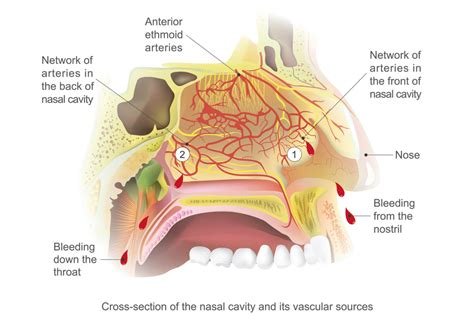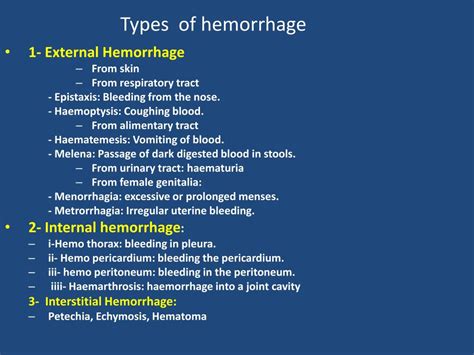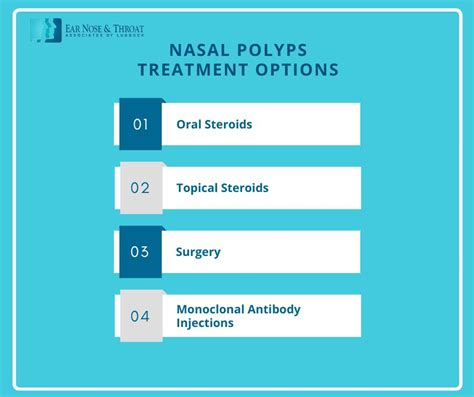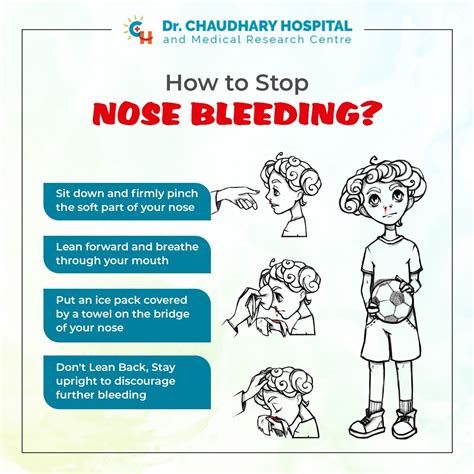Intro
Discover the top 5 nose hemorrhage causes, including dry air, allergies, and trauma, and learn about related conditions like epistaxis, nasal bleeding, and sinus pressure to understand symptoms and treatments.
Nose hemorrhages, also known as nosebleeds, are a common condition that can affect anyone, regardless of age or health status. They occur when the blood vessels in the nose become damaged, leading to bleeding. While nosebleeds can be alarming, they are often not a cause for concern and can be treated easily. However, it's essential to understand the underlying causes of nose hemorrhages to prevent and manage them effectively. In this article, we will delve into the world of nose hemorrhages, exploring their causes, symptoms, and treatment options.
Nose hemorrhages can be caused by a variety of factors, ranging from minor injuries to underlying medical conditions. Some of the most common causes of nosebleeds include dry air, allergies, and sinus infections. When the nasal passages become dry, the blood vessels in the nose can become fragile and prone to bleeding. Allergies and sinus infections can also cause the blood vessels to become inflamed, leading to nosebleeds. In addition to these factors, nosebleeds can also be caused by more serious conditions, such as high blood pressure, bleeding disorders, and tumors.
Understanding the causes of nose hemorrhages is crucial for preventing and treating them. By identifying the underlying cause of a nosebleed, individuals can take steps to prevent future episodes. For example, using a humidifier to add moisture to the air can help prevent nosebleeds caused by dry air. Avoiding allergens and treating sinus infections can also help reduce the risk of nosebleeds. In some cases, nosebleeds may be a sign of an underlying medical condition that requires attention. By seeking medical attention if nosebleeds persist or are severe, individuals can ensure that any underlying conditions are diagnosed and treated promptly.
Nose Hemorrhage Causes and Risk Factors

Minor Injuries and Nose Hemorrhages
Minor injuries, such as a blow to the nose or picking at the nose, can cause nosebleeds. When the nasal passages become injured, the blood vessels can become damaged, leading to bleeding. In most cases, nosebleeds caused by minor injuries are not a cause for concern and can be treated easily. However, if the bleeding is heavy or persistent, it's essential to seek medical attention.Types of Nose Hemorrhages

Anterior Nose Hemorrhages
Anterior nosebleeds occur in the front of the nose and are usually caused by minor injuries or dry air. They can be treated easily by applying pressure to the nose and using nasal sprays or gels to help stop the bleeding. In some cases, anterior nosebleeds may require cauterization, a procedure that uses heat or chemicals to seal the blood vessels.Treatment Options for Nose Hemorrhages

Home Remedies for Nose Hemorrhages
There are several home remedies that can help treat nosebleeds, including: * Applying pressure to the nose: Applying pressure to the nose can help stop the bleeding. * Using nasal sprays or gels: Nasal sprays or gels can help stop the bleeding and promote healing. * Staying hydrated: Staying hydrated can help keep the nasal passages moist and reduce the risk of nosebleeds. * Avoiding allergens: Avoiding allergens can help reduce the risk of nosebleeds caused by allergies.Preventing Nose Hemorrhages

Lifestyle Changes for Preventing Nose Hemorrhages
Making lifestyle changes can also help prevent nosebleeds. Some lifestyle changes that can help prevent nosebleeds include: * Quitting smoking: Quitting smoking can help reduce the risk of nosebleeds caused by smoking. * Avoiding picking at the nose: Avoiding picking at the nose can help reduce the risk of nosebleeds caused by minor injuries. * Staying hydrated: Staying hydrated can help keep the nasal passages moist and reduce the risk of nosebleeds.Complications of Nose Hemorrhages

Seeking Medical Attention for Nose Hemorrhages
If nosebleeds are heavy, persistent, or recurrent, it's essential to seek medical attention. A healthcare professional can diagnose the underlying cause of the nosebleed and provide treatment to prevent future episodes. In some cases, nosebleeds may be a sign of an underlying medical condition that requires attention.Conclusion and Next Steps

We invite you to share your thoughts and experiences with nose hemorrhages in the comments section below. Have you ever experienced a nosebleed? What were the causes and symptoms, and how did you treat it? Your feedback and questions are valuable to us, and we look forward to hearing from you.
What are the most common causes of nose hemorrhages?
+The most common causes of nose hemorrhages include dry air, allergies, and sinus infections. Minor injuries, high blood pressure, and bleeding disorders can also cause nosebleeds.
How can I prevent nose hemorrhages?
+To prevent nose hemorrhages, use a humidifier to add moisture to the air, avoid allergens, and treat sinus infections. Quitting smoking, avoiding picking at the nose, and staying hydrated can also help reduce the risk of nosebleeds.
When should I seek medical attention for a nose hemorrhage?
+If nosebleeds are heavy, persistent, or recurrent, it's essential to seek medical attention. A healthcare professional can diagnose the underlying cause of the nosebleed and provide treatment to prevent future episodes.
